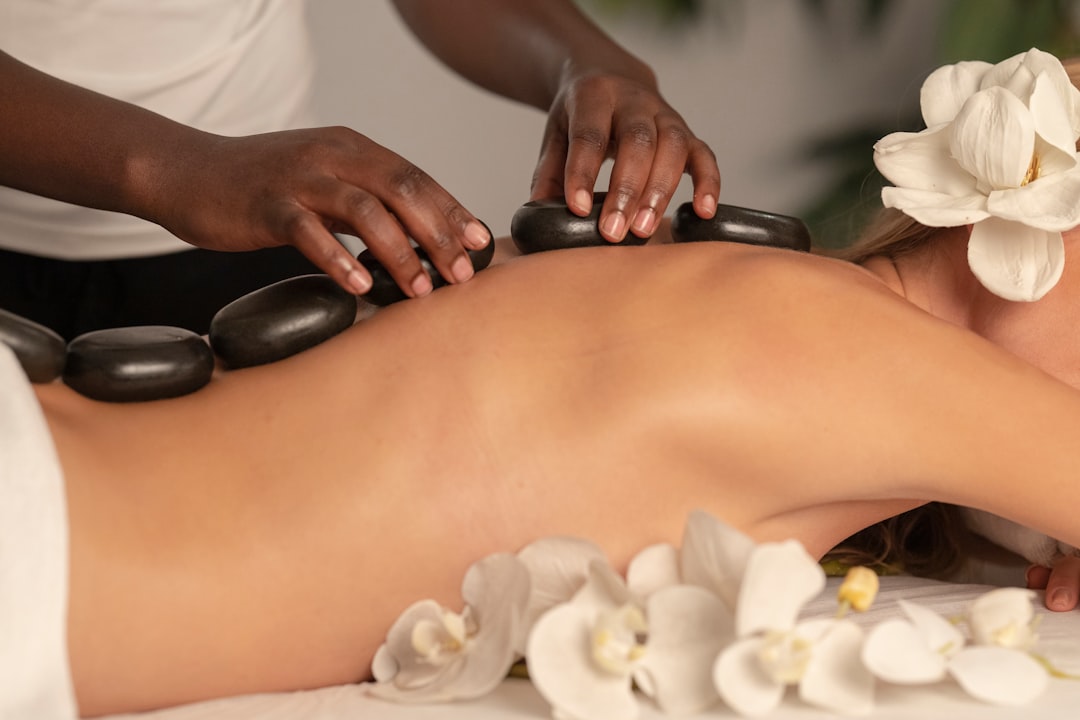Recognizing patterns like unexplained injuries, consistent client complaints, or suspicious cancellations is crucial for identifying abuse in IN massage spas. Understanding the psychological effects on survivors and perpetrators helps implement targeted prevention strategies. Strict laws, education, and collaborative efforts have significantly addressed and prevented abuse cases in IN. A multi-faceted approach including staff training, robust reporting mechanisms, clear policies, community outreach, and open communication fosters client safety and ethical practices within IN massage spas.
In recent years, Indiana, particularly its capital city of Indianapolis, has faced a growing concern regarding abuse within the massage spa industry. This article delves into the complex cycle of abuse surrounding these cases, offering insights from local psychologists. We explore recognizing patterns and red flags, the psychological impacts on victims and perpetrators, legal perspectives, and preventative measures to combat this issue within IN’s spas. Understanding these factors is crucial in addressing a pressing social problem.
Recognizing Patterns: Identifying Red Flags in Spa Abuse Cases

Recognizing patterns and identifying red flags is a critical step in understanding and addressing abuse within IN massage spa environments. Psychologists in Indianapolis have observed several recurring indicators that can signal potential abusive situations. These include unexplained physical injuries, consistent complaints from clients about specific therapists, and a pattern of suspicious cancellations or no-shows by the same individuals.
Furthermore, behavioral changes among staff members, such as increased secrecy, sudden shifts in attitude, or withdrawal from social interactions, may point to underlying issues. By paying close attention to these red flags, spas can proactively investigate and ensure the safety and well-being of both clients and employees, fostering a more secure environment across IN.
Psychological Impact: The Effects on Victims and Perpetrators

The psychological impact of abuse in massage spa settings is profound, affecting both victims and perpetrators in unique ways. For survivors, the effects can be devastating, leading to anxiety, depression, post-traumatic stress disorder (PTSD), and low self-esteem. Many victims struggle with trust issues, fear, and a sense of powerlessness, which can significantly impair their daily lives and relationships. IN Indianapolis, psychologists have observed that these individuals often exhibit signs of disassociation, causing them to feel disconnected from their own experiences.
On the other hand, perpetrators may display a range of behaviors, including denial, anger, and even internalized shame. They might struggle with substance abuse or engage in self-harm as a coping mechanism. The cycle of abuse can perpetuate these harmful patterns, creating a complex web of psychological challenges that require professional intervention. Understanding these impacts is crucial for IN massage spa communities to develop effective prevention strategies and support systems tailored to address the unique needs of those affected.
Legal Perspectives: Addressing Massage Spa Abuse in Indianapolis

In Indiana (IN), legal perspectives play a pivotal role in addressing and preventing massage spa abuse cases. The state’s laws regarding sexual harassment, assault, and consent are stringent, with strict penalties for offenders. Psychologists in Indianapolis have been instrumental in providing insights into the cycle of abuse within these establishments, helping to identify patterns and develop strategies to protect clients. By collaborating with legal authorities, they contribute to a comprehensive approach that includes education, policy reforms, and support services for victims.
This collaborative effort has led to increased awareness among spa owners and employees regarding the red flags of potential abuse. Legal interventions, such as enhanced licensing requirements, background checks, and regular inspections, have further strengthened the IN massage industry’s commitment to client safety. As a result, spas across the state are now better equipped to foster an environment that prioritizes consent, respect, and professional boundaries.
Preventative Measures: Strategies to Combat Cycle of Abuse

Preventative measures are paramount in combating the cycle of abuse within IN massage spas. One effective strategy involves staff training and education, ensuring professionals recognize signs of manipulation, coercion, or exploitation. By fostering a culture of consent, respect, and open communication, spas can empower employees to create safe spaces for clients.
Additionally, implementing robust reporting mechanisms and clear policies is crucial. Encouraging clients to voice concerns without fear of retaliation creates an environment where abuse can be addressed promptly. Regular reviews and updates to these policies, coupled with community outreach programs, can further mitigate risks, ensuring IN massage spas prioritize client well-being and maintain ethical practices.






